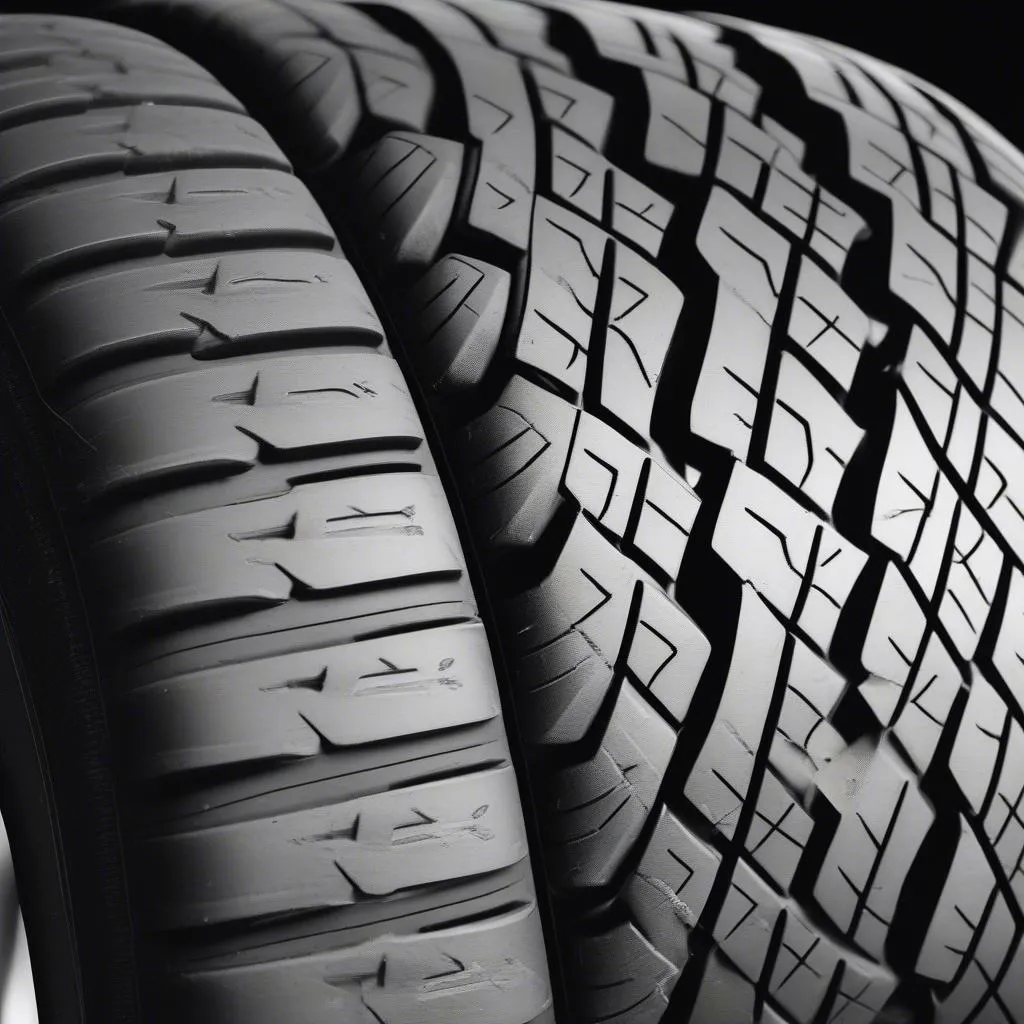You’re driving down the road, enjoying the open highway, when suddenly, you feel a tremor in your car. It’s a subtle vibration at first, but it quickly intensifies, making you grip the steering wheel tighter. You might even hear a rumbling noise. This shaking, or vibration, can be a sign of a serious problem, but it can also be something as simple as an unbalanced tire.
Why Is My Car Shaking When I Drive?
This question is one that’s often asked by car owners worldwide. There are a variety of reasons why your car might be shaking while driving. It could be due to a problem with your tires, wheels, suspension, or even your engine.
Why Is My Car Shaking When I Drive? – From a Mechanic’s Perspective
As a mechanic specializing in European car diagnostics, I’ve seen it all. From a wobbly tire to a malfunctioning engine mount, these issues can range from minor nuisances to major safety hazards.
Understanding the Problem
Let’s break down the potential causes of this shaking:
1. Tire Problems:
- Unbalanced Tires: The most common culprit is an imbalance in your tires. Imagine a tire like a spinning wheel. If it’s not perfectly balanced, it will wobble, causing vibrations to travel through your car. The weight of the tire, the rim, and the valve stem should be evenly distributed for smooth riding.
- Uneven Tire Wear: If your tires have uneven wear, it can cause a similar shaking sensation. Tire wear can be affected by driving habits, tire pressure, and suspension issues.
2. Wheel Problems:
- Bent or Damaged Wheels: A bent or damaged wheel can cause vibration and shaking, especially at higher speeds.
3. Suspension Issues:
- Worn Suspension Components: Shock absorbers, struts, ball joints, and control arm bushings wear out over time. This wear can cause excessive movement and shaking.
4. Engine and Drivetrain Problems:
- Engine Misfire: An engine misfire occurs when one or more cylinders in your engine fail to ignite properly. This can create a rough running engine and vibration.
- Worn Engine Mounts: Engine mounts are designed to isolate the engine from the chassis. If they’re worn, the engine can move excessively, causing vibrations.
- Drivetrain Problems: Worn CV joints in your drive axles, especially on front-wheel drive cars, can cause shaking, especially when turning.
What Happens When You Ignore the Shaking?
- Increased Wear and Tear: Continued vibrations can lead to accelerated wear and tear on your tires, suspension, and other components.
- Safety Hazard: Shaking can affect your ability to control your car, especially at higher speeds.
- Potential for More Serious Problems: If the cause of the shaking is not addressed, it could lead to a more serious breakdown.
 Unbalanced Tire
Unbalanced Tire
Identifying the Cause of the Shaking
The best way to identify the cause of your car shaking is to take it to a qualified mechanic. They can use diagnostic tools and their expertise to pinpoint the problem.
Why Is My Car Shaking When I Drive? – Common Questions
Here are some common questions asked by drivers experiencing shaking:
- Why is my car shaking when I drive over 60 mph? This could be due to a tire issue, a bent wheel, or a suspension problem.
- Why is my car shaking when I accelerate? This could be a sign of an engine misfire or a problem with the transmission.
- Why is my car shaking when I turn? This could be a problem with your suspension, wheel bearings, or CV joints.
How to Fix the Shaking
The best solution is to get a diagnosis from a qualified mechanic. They can determine the cause of the shaking and recommend the appropriate repair.
For example:
- Tire problems: If your car is shaking due to a tire issue, the mechanic will need to balance the tires, replace worn tires, or repair any damage to the wheels.
- Suspension problems: If the shaking is caused by worn suspension components, they’ll need to be replaced.
- Engine problems: If the shaking is due to an engine misfire, the mechanic will need to diagnose the cause of the misfire and repair it.
Preventing Future Shaking
There are a few things you can do to help prevent your car from shaking in the future:
- Regular Maintenance: Follow your car’s recommended maintenance schedule. This includes getting regular oil changes, tire rotations, and inspections of your suspension.
- Tire Pressure: Ensure your tires are inflated to the correct pressure. Check your owner’s manual or the sticker on your driver’s side doorjamb for the recommended pressure.
- Driving Habits: Avoid harsh acceleration and braking. These can put extra strain on your suspension and tires.
 Car Shaking
Car Shaking
Need Help?
If you’re experiencing car shaking or any other car issues, don’t hesitate to contact DiagXCar. Our team of experts can help you diagnose and repair any problems with your European car. We provide comprehensive diagnostics and repair services for all European makes and models, including BMW, Mercedes-Benz, Audi, and more. We use the latest technology and diagnostic tools to ensure accurate and efficient repairs.
Contact us on WhatsApp at +84767531508 for immediate assistance.
Related Articles
- Car Shakes When Turning Left at High Speeds: https://diagxcar.com/car-shakes-when-turning-left-at-high-speeds/
- Can Bad Alignment Cause Shaking? https://diagxcar.com/can-bad-alignment-cause-shaking/
- Car Vibrates at Certain Speeds: https://diagxcar.com/car-vibrates-at-certain-speeds/
Conclusion
A shaking car can be a sign of a serious problem, but it doesn’t have to be a cause for panic. By understanding the potential causes of the shaking and taking steps to address the problem, you can keep your car running smoothly and safely. If you need assistance, DiagXCar is here to help. We offer comprehensive diagnostics and repairs for all European cars. Contact us today for a free consultation.